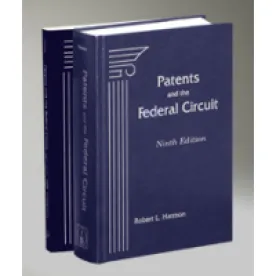The doctrine of intervening rights protects third parties from some infringement claims based on changes to the scope of a patent made through post-patent issuance processes (including in re-issue and re-examination proceedings). In very general terms, a third party who makes, uses, and/or sells articles or acquires such articles before such changes are made is protected with respect to articles or activities that would not have infringed the patent as it existed prior to the post-issuance substantive changes. As the en banc decision in Marine Polymer Tech. v. Hemcon, Inc., Appeal No. 2010-1548 (Fed. Cir. 2011) noted, the doctrine of intervening rights applies not only reissued patents, but also in the context of re-examination proceedings.
With the passage of the America Invents Act, especially with its addition of post-grant review, we expect that post-issuance proceedings, including re-examinations, will increase even more. Intervening rights issues are thus likely to arise even more frequently than they have in the past.
The Marine Polymer case related to the intervening rights in re-examination proceedings. The issue was, “When are the intervening rights triggered in the context of re-examination proceedings?” Last year a three judge Federal Circuit panel held that canceling dependent claims and adopting a narrower interpretation of independent claims in a reexamination was sufficient to trigger intervening rights, even without changing the language of the independent claims. Therefore, the panel held, the accused infringer was protected from infringement damages due to intervening rights even though the infringed, independent claims were not amended.
On March 15, 2012, a sharply divided 6-4 en banc decision reversed the panel decision and held, “It is clear that 'amended' is a term of art in patent prosecution, including re-examination proceedings, and in that context connotes formal changes to the actual language of a claim.” (Judge Lourie writing for the 6-4 majority). Consequently, intervening rights were not triggered since the patentee “did not 'amend' those claims for intervening rights purposes or make them 'new,' which is what the statutory language requires.” In the context of re-examination proceedings, without an actual claim amendment, the majority held, there will be no intervening rights.
Reexamination Was Initiated During the District Court Proceedings And Completed After the Verdict and Final Judgment
The patentee Marine Polymer sued Hemcon alleging Hemcon’s wound treatment used a an infringing polymer. The parties disputed the meaning of the patent claim term “biocompatible.” Rejecting the parties’ proposed constructions, the district court adopted its own construction requiring, in part, that the polymer exhibit “no detectable biological reactivity.” The court then granted the patentee, Marine Polymer, summary judgment of literal infringement even though the court’s “no detectable biological reactivity” construction was narrower than the patentee’s proposed construction (which would have allowed for “acceptably low levels of adverse bioreactivity”). A jury trial on damages resulted in a verdict of $29.4 million for the patentee Marine Polymer.
After the grant of summary judgment but before the jury trial, the accused infringer, Hemcon, initiated a reexamination proceeding at the USPTO. The reexamination examiner initially rejected all the claims as obvious over the prior art and noted that the district court’s claim construction of “no detectable biological reactivity” was inconsistent with dependent claims that explicitly allowed some reactivity. In response, Marine Polymer abandoned its proffered district court claim construction of “acceptably low levels of adverse bioreactivity” and instead stated that “the [district court’s] interpretation of the term ‘biocompatible’ should be adopted in this reexamination.” Marine Polymer also cancelled the six allegedly inconsistent dependent claims. Marine Polymer did not amend or otherwise change the wording of the independent claims being litigated, however. The Examiner allowed the remaining claims, stating in the reasons for patentability that he “now agrees with the court’s definition of the term biocompatible…” of “no detectable biological reactivity.” The reexamination, which started during the district court litigation, concluded on this basis after the jury verdict, i.e., the reexamination certificate issued during the course of the Federal Circuit appeal process.
The Original Federal Circuit Panel Found a Change of Claim Scope and Absolute Intervening Rights Even Though the District Court Did Not Consider the Issue
On appeal the accused infringer and appellant Hemcon asserted that, based on the reexamination record, it was entitled to intervening rights and, therefore, protected from infringement. The original three-judge Federal Circuit panel explained the doctrine of absolute intervening rights:
The doctrine of absolute intervening rights protects an accused infringer’s right to continue using, selling, or offering to sell specific products covered by reissued or reexamined claims when the particular accused product had been made before the date of the reissue or reexamination and the scope of the claims is substantively changed. 35 U.S.C. § 252; see also 35 U.S.C § 307(b) (applying the provisions of § 252 to “amended or new claim[s] determined to be patentable and incorporated into a patent following a reexamination”). “The specific things made before the date of reissue, which infringe the new reissue claims, are absolutely free of the reissued patent and may be used or sold after the date of the reissue without regard to the patent.” BIC Leisure Prods., Inc. v. Windsurfing Int’l, Inc., 1 F.3d 1214, 1220 (Fed. Cir. 1993). In other words, the statute “provides an accused infringer with the absolute right to use or sell a [specific] product that [it] made, used, or purchased before the grant of the reissue[d] [or reexamined] patent.” Id.
However, intervening rights do not apply where the accused product “infringes a valid claim of the reissued patent which was in the original patent.” 35 U.S.C. § 252. Therefore, intervening rights are available only if the original claims have been “substantively changed,” and “in determining whether substantive changes have been made, we must discern whether the scope of the claims [has changed], not merely whether different words are used.” Laitram Corp. v. NEC Corp., 163 F.3d 1342, 1346 (Fed. Cir. 1998).
Next, the panel examined the proper construction of “biocompatible” in the district court’s construction and found that the district court erred by requiring “no detectable biological reactivity” since the claims did originally cover “slight reactivity.” However, the patentee, Marine Polymer, had stated during the reexamination that “the [District] Court’s claim construction is consistent with the broadest reasonable interpretation of the claim term in light of the description…” after it had originally advocated a different claim construction to the district court. The original panel found that by making that reexamination statement, the patentee “Marine Polymer imported the district court’s erroneous claim construction on reexamination.” Therefore, even though the patentee Marine Polymer did not change the original wording of the asserted claims during the reexamination, the panel held that the patentee had narrowed the original claim scope in the course of the reexamination, effectively amending the claims. This meant that the accused infringer was entitled to absolute intervening rights and not liable for any damages prior to the issuance of the reexamination certificate, i.e., the entirety of the $29.4 million jury verdict was vacated.
The En Banc Consideration and Decision
The original panel’s decision created intense controversy. When Marine Polymers sought en banc review, at least six amicus briefs were filed. An Intellectual Ventures amicus brief in support of en banc rehearing argued the practical policy aspects and said that if the decision stood, then parties will “request even more re-examinations and to make such contentions routinely as a means to enjoy intervening rights and avoid liability for past infringement.”
Only ten Federal Circuit judges participated in the en banc decision. The en banc panel ruled 6-4 in deciding that intervening rights did not apply. It observed that Section 252 of the Patent Act relating to re-issued patents specifically codified the intervening rights doctrine and created two types of intervening rights as to reissued patents: “(1) intervening rights that abrogate liability for infringing claims added to or modified from the original patent if the accused products were made or used before the reissue, often referred to as absolute intervening rights; and (2) intervening rights that apply as a matter of judicial discretion to mitigate liability for infringing such claims even as to products made or used after the reissue if the accused infringer made substantial preparations for the infringing activities prior to reissue, often referred to as equitable intervening rights.”
However, the en banc panel went on to note that Section 307(b)—which related to ex parte re-examination proceedings—provided that “Any proposed amended or new claim determined to be patentable and incorporated into a patent following a reexamination proceeding will have the same effect as that specified in section 252 of this title for reissued patents on the right of any person who made, purchased, or used within the United States, or imported into the United States, anything patented by such proposed amended or new claim, or who made substantial preparation for the same, prior to issuance of a certificate under the provisions of subsection (a) of this section.” (Section 316 of the Patent Act uses similar language with respect to inter partes re-examination proceedings.) Thus, according to the en banc panel, the intervening rights protections for re-examined patents only attaches to the extent that the re-examination results in amended or new claims. After “a patent emerges from reexamination, the statute makes available absolute and equitable intervening rights to the same extent provided in the reissue statute, but only with respect to “amended or new” claims in the reexamined patent.” The Court stated:
[T]he plain directive of the governing statute before us does not permit HemCon to invoke intervening rights against claims that the PTO confirmed on reexamination to be patentable as originally issued. To be sure, patent applicants' actions and arguments during prosecution, including prosecution in a reexamination proceeding, can affect the proper interpretation and effective scope of their claims. But in rejecting HemCon's request for intervening rights, we are not here interpreting claims. Rather, we are interpreting a statute that provides for intervening rights following reexamination only as to “amended or new” claims. The asserted claims of the '245 patent are neither.
Judge Dyk wrote for the dissent stating, “[w]hile 'amend' may often connote an actual change in language, that is not the only meaning of the term 'amend.'” He continued that, “[t]here are a number of cases decided in similar contexts that make clear that a written document can be 'amended' without a language change.” Judge Dyk expressed concern that by not applying intervening rights to patentability arguments the intervening rights statute will “will be plainly and directly thwarted.” Moreover, he wrote that, “Allowing patent owners to avoid creating intervening rights by amending claims by argument is an abuse of the re-examination process and undermines the purpose of intervening rights.” The majority rejected this argument as “highly unlikely” because if “an examiner determines that particular claims are invalid and need amendment to be allowable, one would expect an examiner to require amendment rather than accept argument alone.”
Conclusions
We question whether Marine Polymer will be reviewed by the Supreme Court. If our conjecture is right, the law for the foreseeable future will be that actual amendments are required to trigger absolute intervening rights in the context of reexamination proceedings.
Given the ruling, practitioners will be urging the USPTO to be mindful of requiring a textual modification of the claim when a claim’s scope is arguably changed during a reexamination or other post-grant proceeding due to the patent-holder’s arguments. Otherwise, as the dissent points out, the intervening rights statute could be rendered ineffective.
With the passage of the America Invents Act, the scenario of PTO proceedings in addition to or in lieu of district court proceedings will continue to become more prevalent. With the addition of post-grant review and the expanded scope of these proceedings, intervening rights issues are likely to be at issue more frequently as patentees will be forced to fend off even more challenges to their patents at the PTO where claim amendments can be made. In fact, as of the passage of the act in September 2011 claims were amended in about 66% of all ex parte reexaminations requested and 45% of all inter partes reexaminations requested. In these scenarios a coordinated and consistent district court litigation and PTO prosecution strategy will continue to be important -- particularly as to claim construction and scope. Moreover, patent practitioners will need to be well-versed in both litigation and PTO proceedings and procedures.






 />i
/>i

